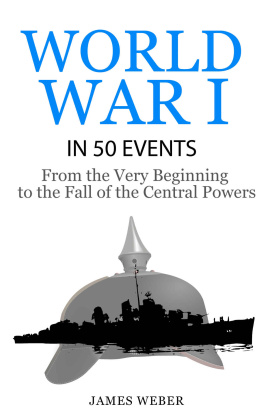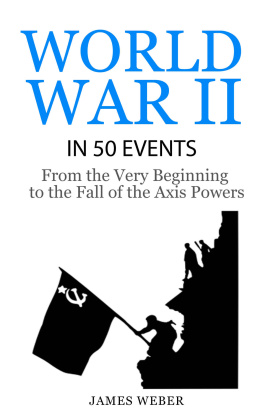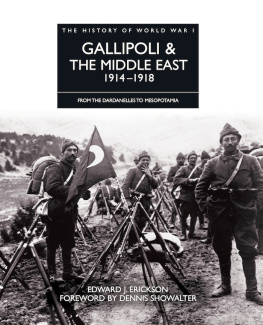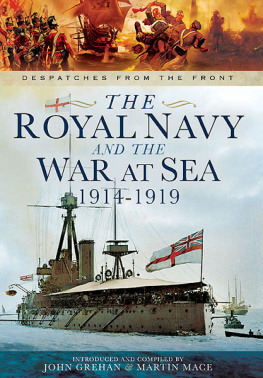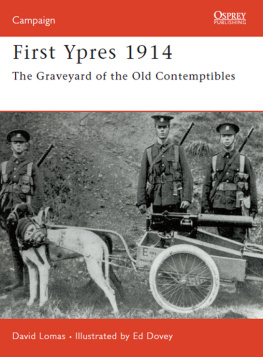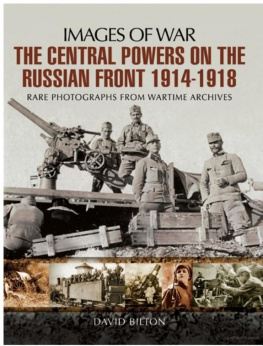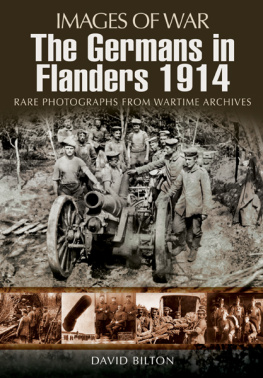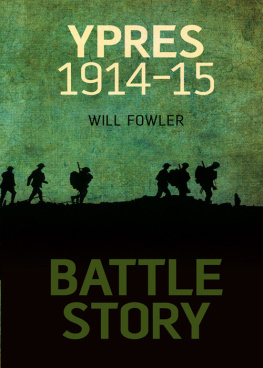Copyright 2015
All rights reserved. This book or any portion thereof
may not be reproduced or used in any manner whatsoever
without the express written permission of the publisher
except for the use of brief quotations in a book review.
About the Author:
James Weber is an author and journalist. He has a passion for literature and loves writing about social sciences, focusing on history, economics and politics. His hobbies include rowing, hiking and any other outdoor activity. James is married and has two kids.
Other Books in the
History in 50 Events Series












Click on the image to go to the book page
Even more books by the Author:
The Biggest Political Scandals: The Most Famous Cases of Sex, Money and Drugs in Politics
The 10 Most Successful Internet Companies:
Their Success Stories and Secrets
Economics: Economics Explained in 8 Rules
Content
On:
Introduction
World War I began with the assassination of Archduke Franz Ferdinand, which set off a chain of events that would lead the Kingdom of Austria-Hungary to declare war on Serbia on July 28, 1914. Due to complicated military alliances between the great European powers, soon the majority of the continent was dragged into the conflict. Two major blocks then formed: on one side, the Triple Entente or Allies, made up by Britain, Russia, France, and later the US; and on the other side, the Central Powers with Austria-Hungary, Germany, and the Ottoman Empire.
Leading up to the war, internal and external problems created tensions between the European nations similar to a powder keg waiting to explode. New technology and arms races to build stronger weapons and armies, increasing disputes over land, and dissatisfaction with the distribution of power in Europe all added to the harsh diplomatic climate.
Once the war began, many expected the conflict to be over within months. Millions of volunteers enlisted in their nations army to bring home a glorious victory. After the initial euphoria passed and troops on both sides fought over inches of land, they soon realized that the war could drag on for many more years. Eventually, the Allies won with their immense firepower and seemingly endless supplies after the US entered the war. Unfortunately, the draconian measures of the peace treaty of Versailles laid the basis for the next conflict just twenty-one years later.
- James Weber
From the Assassination of Franz Ferdinand to the Battle of Mons
1) May 10, 1871 - France Signs Treaty with Germany Ending the Franco-Prussian War
World War I arose from growing tensions and difficult alliances throughout Europe. The conflict between Germany and France is considered one of the most important rivalries leading up to the Great War. In 1870-1871, the French fought the (still not unified) German states led by Prussia. Prussian Prince Otto Eduard Leopold von Bismarck had long wanted to create a single German nation and used the conflict to unite the small states and, at the same time, eliminate French influence over Europe. On the other hand, France, under the leadership of Napoleon III, was eager to regain the prestige the country lost after the Vienna Convention in 1815.
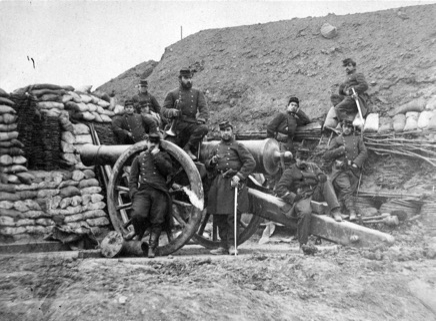
French soldiers in the FrancoPrussian War
The German military proved to be the more powerful, and in the Treaty of Frankfurt, signed on May 10, 1871, France agreed to a German occupation and reparation pay of five billion gold francs. This obligation was abandoned in 1873, the same year the German occupation ended. At the same time, Prussian King William I was crowned German Kaiser and went on to unify most of the German speaking states into the German Empire. This new and growing nation concerned many of its neighbors and even the British Empire, which feared new conflicts on the continent. Even though it would take many years for these tensions to explode into the First World War, most of the underlying problems were already visible.
2) June 15, 1888 - Wilhelm II Becomes German Emperor
As one of the most recognizable German public figures, even today, Wilhelm II would go on to play a major role in World War I. Born in Potsdam, Germany, in 1859, he was the son of Prince Friedrich Wilhelm of Prussia and Princess Victoria, the oldest daughter of Queen Victoria of England. This made him the queens first born grandchild. Wilhelm was known for his intelligence as well as his temper. His verbal outbursts and ill-advised newspaper interviews later helped his enemies blame the conflict on him.

Wilhelm and his father in 1862
Historians today still debate about his actual role in the war, as well as his responsibility for its outbreak. While he did not actively seek war and openly held back his generals from deploying German troops in the summer of 1914, he did promise support for Austria in case of war with Russia. Some argue that as the conflict went on, he lost power and his military personnel gained control. In 1918, he was forced to abdicate and spent the rest of his life in exile in the Netherlands.
3) June 28, 1914 - Archduke Franz Ferdinand Is Assassinated
On June 28, 1914, Archduke Franz Ferdinand of Austria, the presumptive heir to the Austrian throne, as well as his wife, were killed in Sarajevo. The assassin, Gavrilo Princip, was part of a six-man operation coordinated by Danilo Ili, a member of the underground Black Hand society. Their goal was to break off Austria-Hungary's Southern provinces so they could be formed into a Yugoslavian state. The same motives would later be incorporated by a movement known as Young Bosnia. All of the assassins were linked to Serbian military conspirators and spies, who had trained them and offered bombs and pistols for the operation. They were also able to access a network of safe houses that other conspirators used for the infiltration of weapons and other illegal material into Austria-Hungary.
Next page
